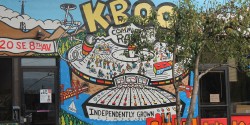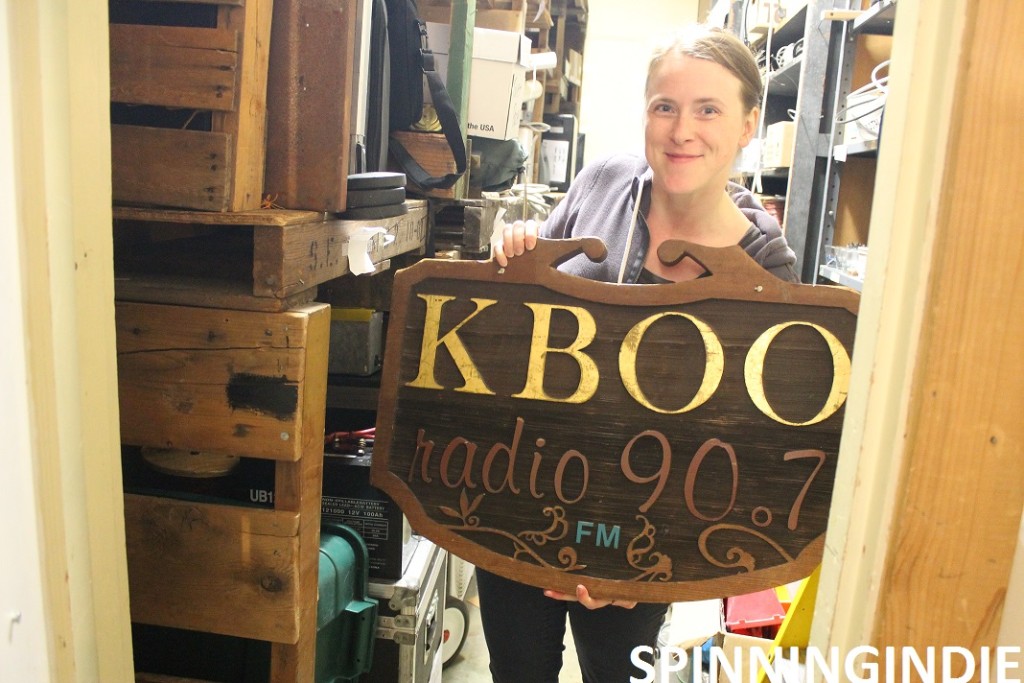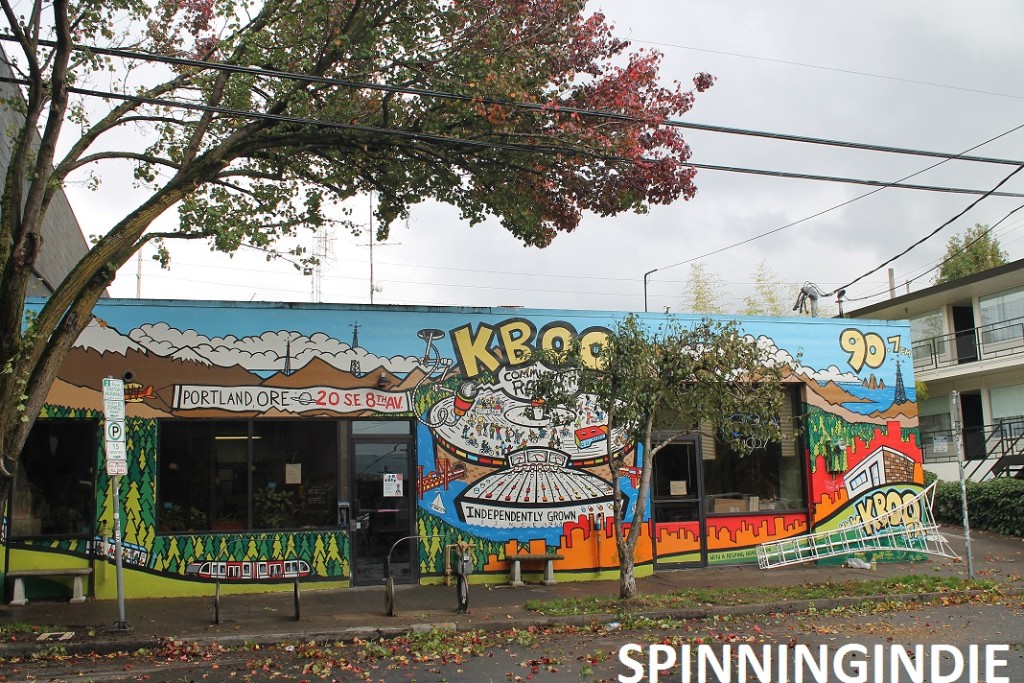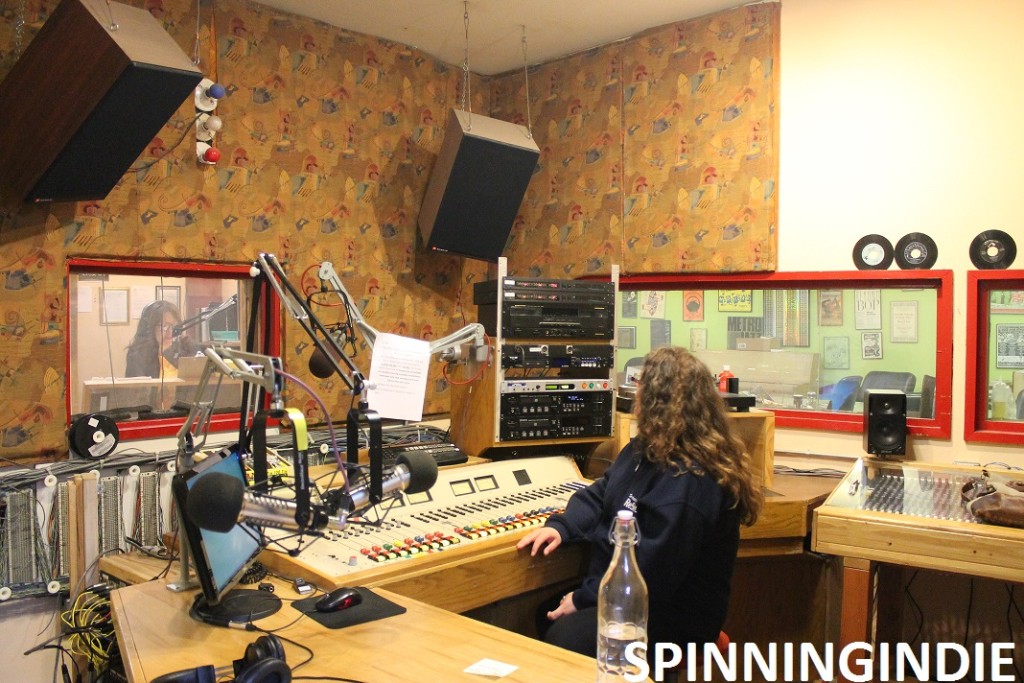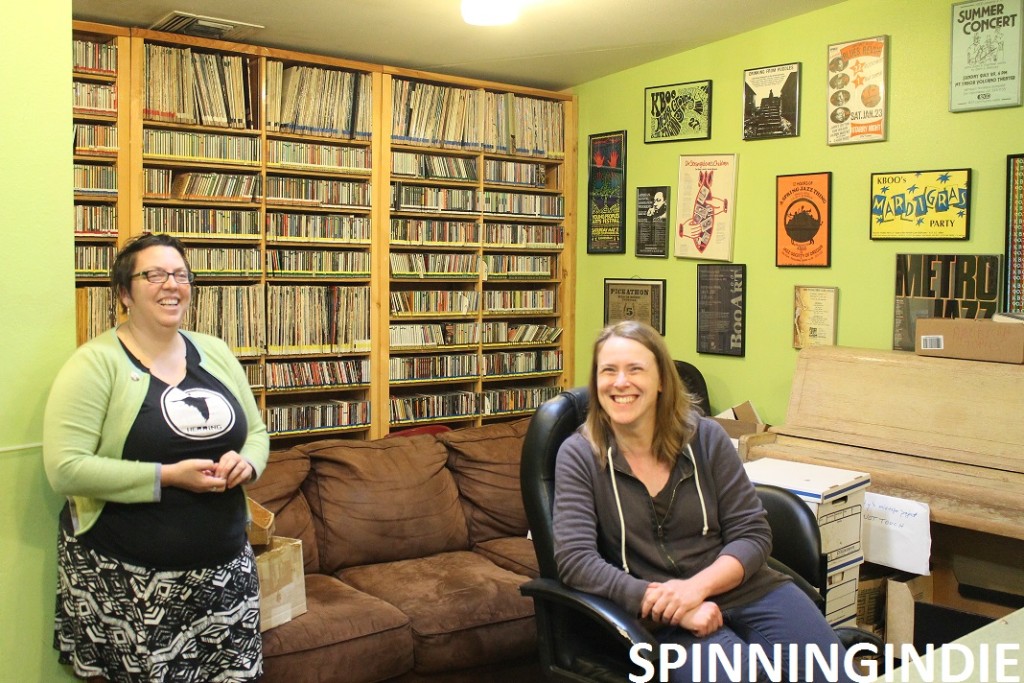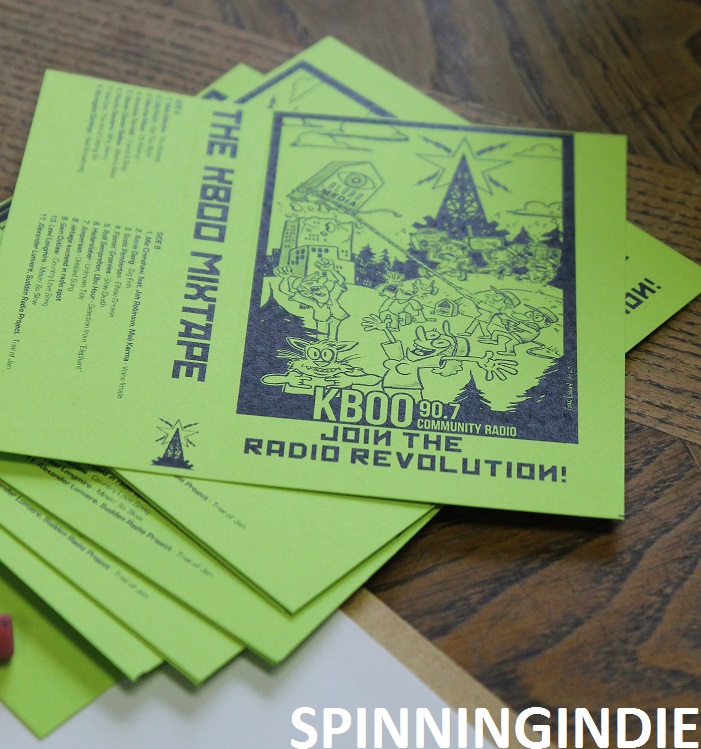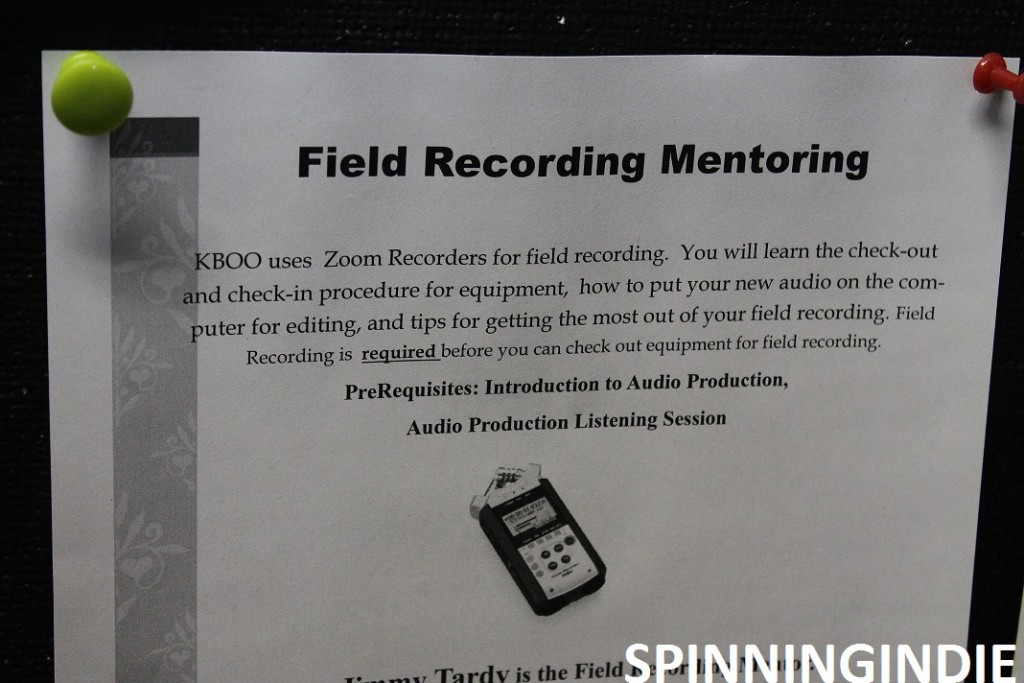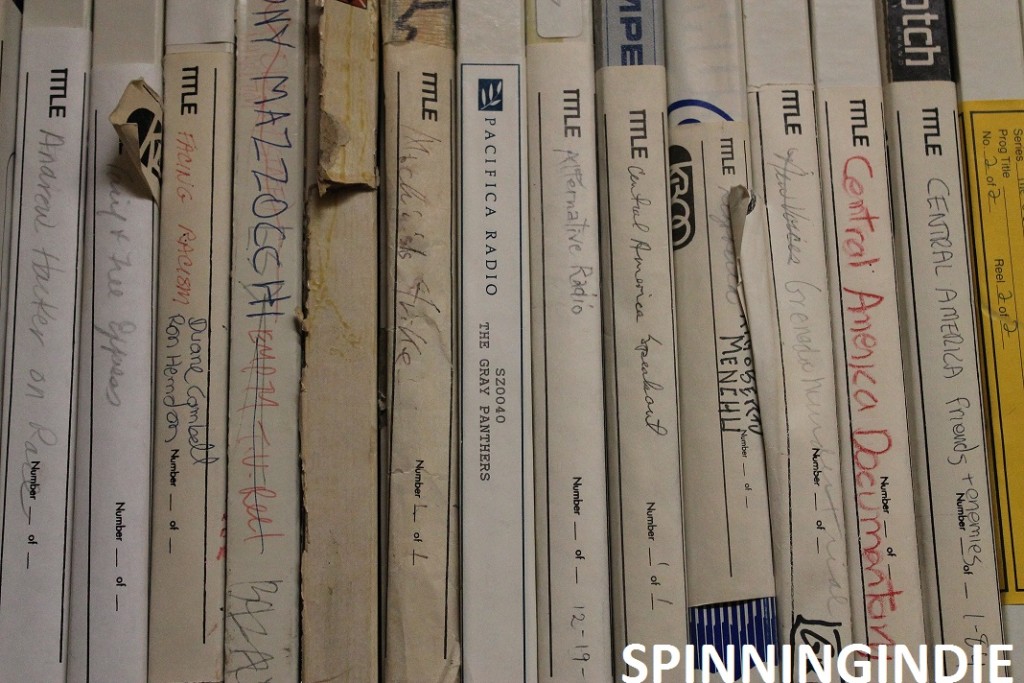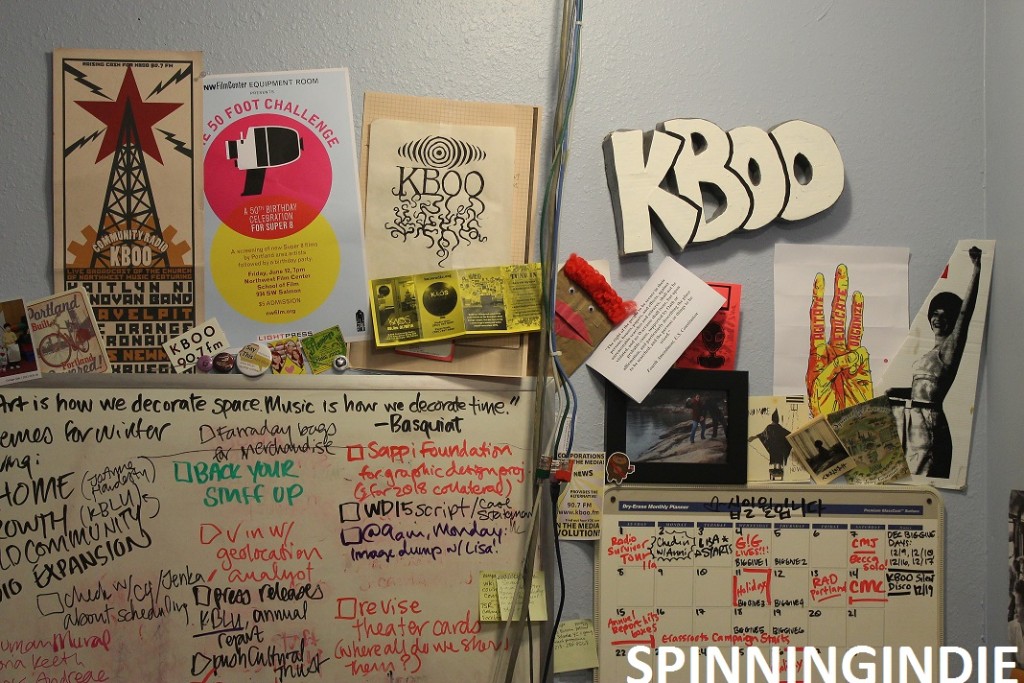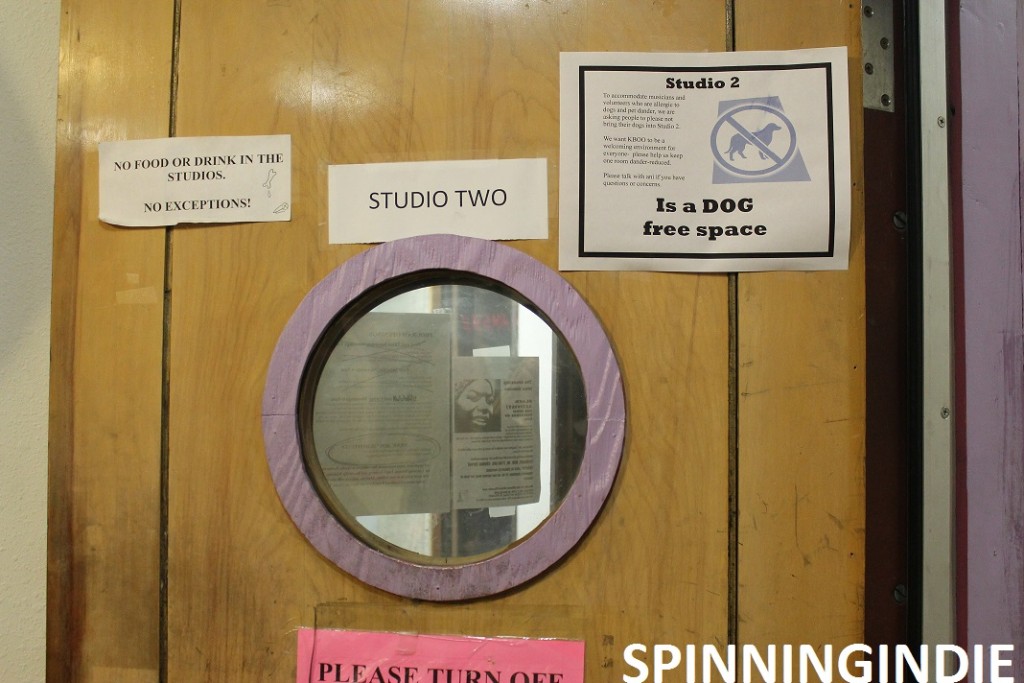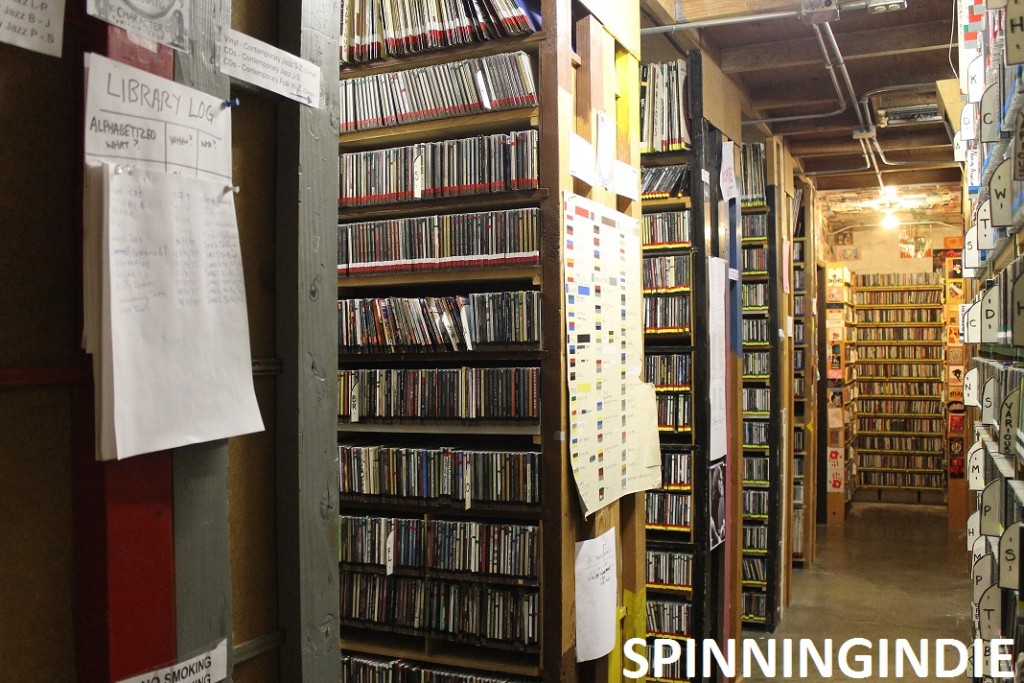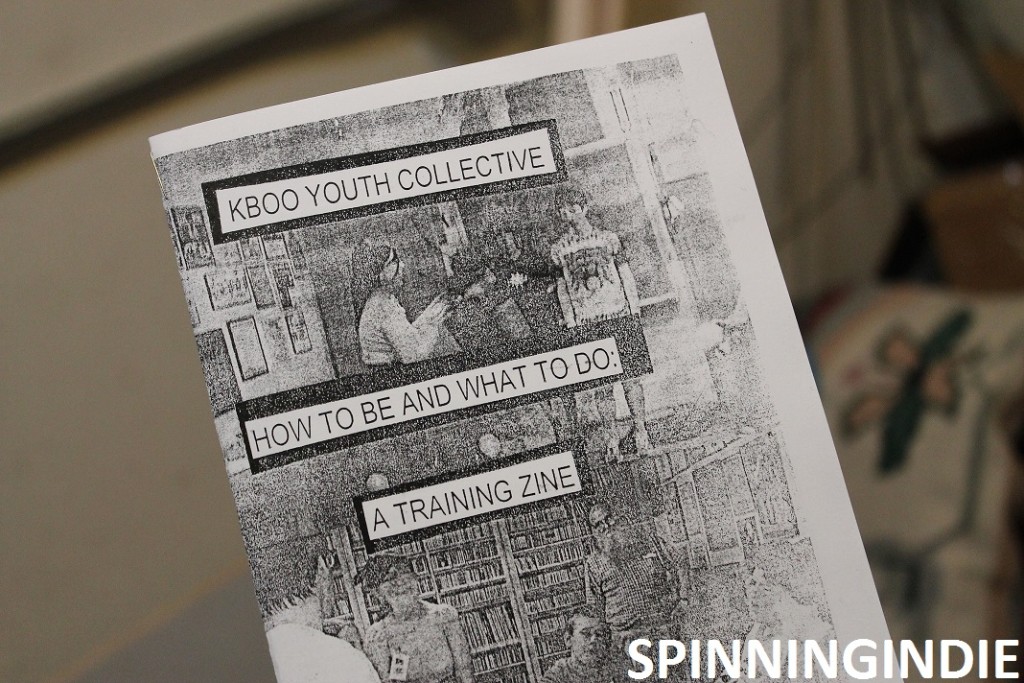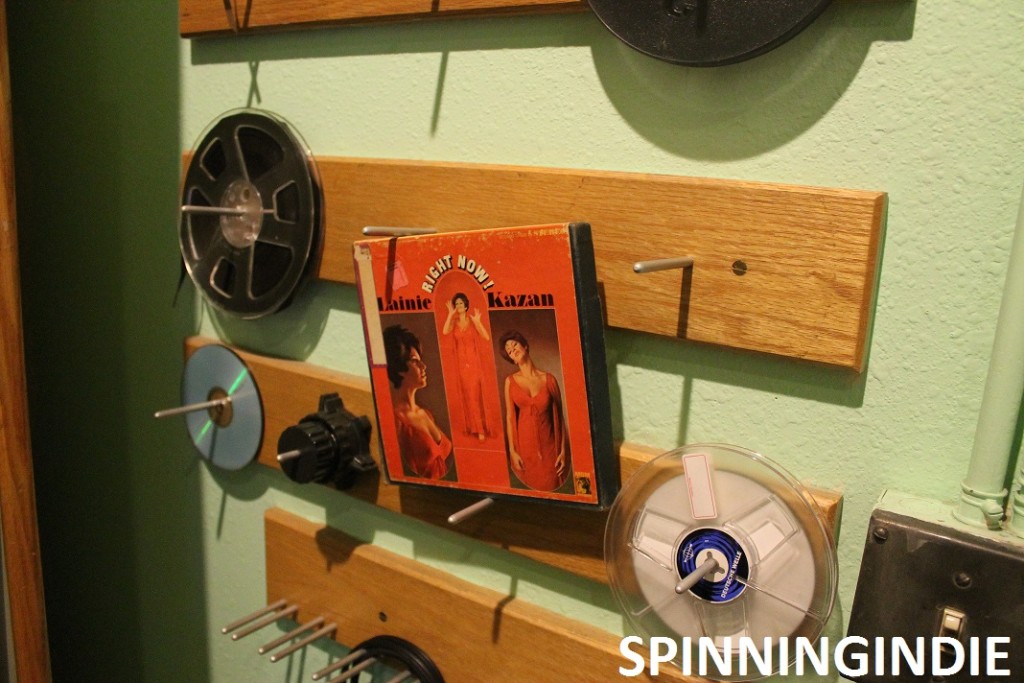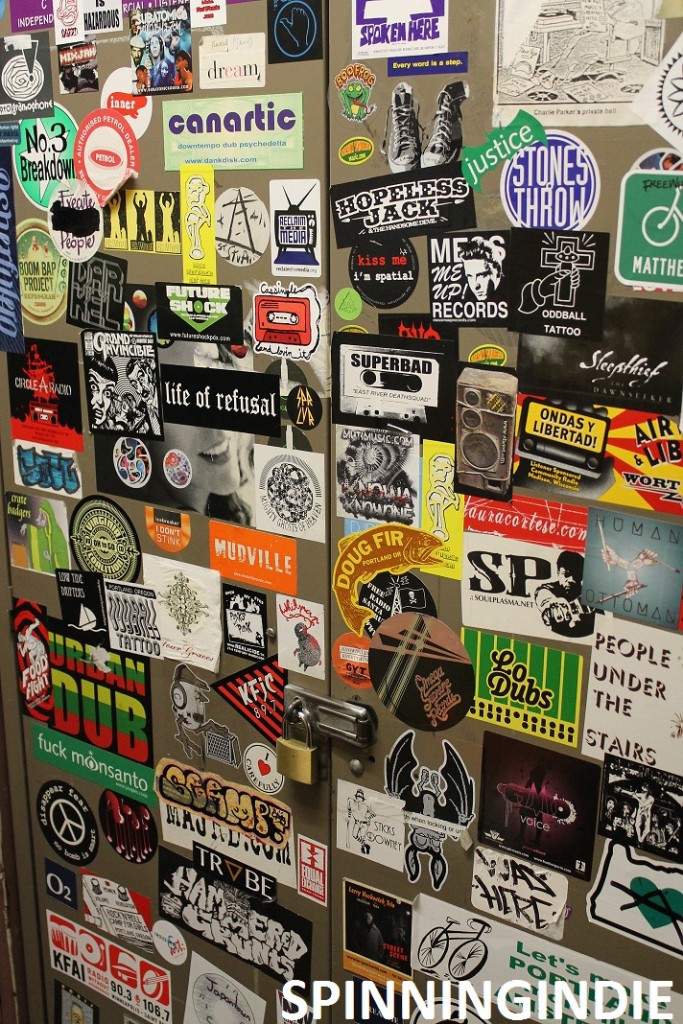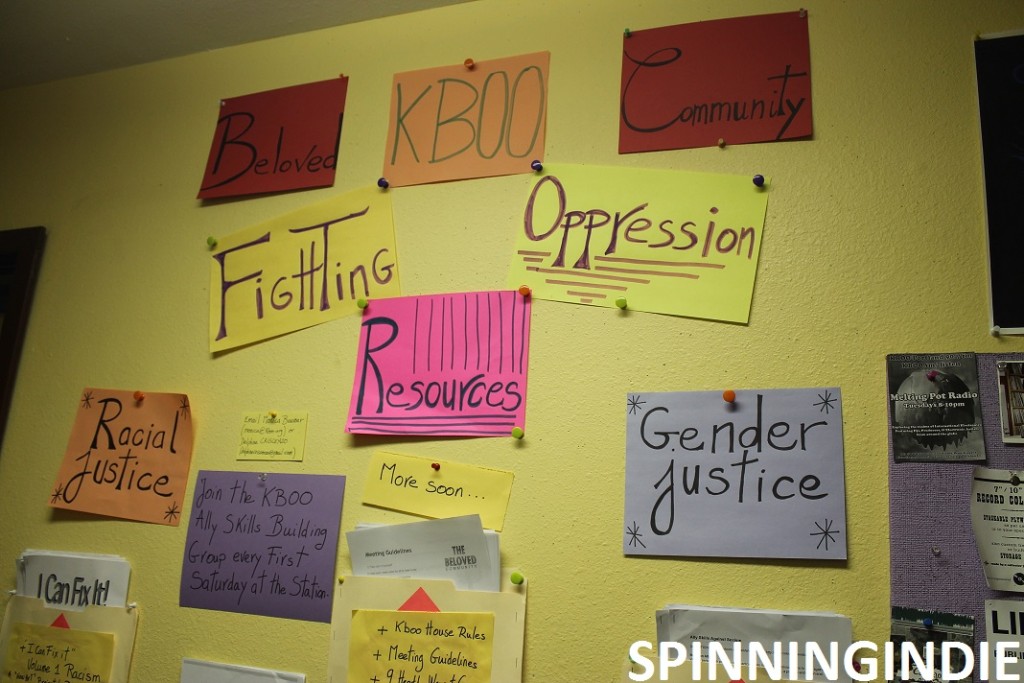Although I’d been to Portland, Oregon-based community radio station KBOO back in 2013 (when I did a crazy, jam-packed day of touring four radio stations), it was an unplanned, drop-in visit and didn’t warrant an official post. For that reason, I was glad to be able to schedule an proper visit when I was in town recently for the CMJ College Day on Tour event. Paul Riismandel and I headed over to the station on a rainy Sunday morning on November 8th and met up with KBOO’s Development Director Becky Meiers and the station’s Program Director Erin Yanke.
When approaching KBOO’s headquarters, it’s impossible to ignore the colorful mural adorning the front of the building. Depicting not only the station’s call letters, but also iconic radio symbols like a microphone, mixing board and radio tower, the edifice makes it clear to all passersby that radio is being celebrated within the the building’s walls.
KBOO has a long history, stretching back to the 1960s, when a group of radio enthusiasts formed Portland Listener Supported Radio and ultimately applied for an FM radio license. KBOO (its call letters refer to a type of marijuana known as “Berkeley Boo”) launched in June, 1968. Today the station broadcasts over 90.7 FM in Portland as well as over 104.3 FM in Corvallis and over 91.9 FM in Hood River.
As we walked in the door, we were greeted by Meiers, who was in the station’s lobby, busily working on a mix tape project. She had a box of recycled cassettes at her side and was labeling them with handcrafted KBOO inserts. She explained that,
The mixtape project is a cool collaborative compilation project we’ll be offering freely through a number of venues. Live music engineers selected recordings of musical artists who played live on the air in the past year, community members donated cassette tapes, a local cassette label lent us their duplicator, an awesome illustrator contributed cover art, and many talented volunteers lent their time to processing the tapes. Soon, they’ll be available for folks to find at various local venues: at record stores, concert venues, and bookstores all over Portland. We want to introduce people who may not already listen to KBOO to the variety and depth of our music programming.”
Meiers joked with me about the DIY nature of her mix tape project, telling me that recording over old cassettes would make for less-than-perfect audio, but that she thinks that is part of the charm of the whole project. Those without a cassette player can download the mixtape from KBOO’s Bandcamp page.
Yanke joined us and we embarked on a tour of the station. Although it was around noon on a Sunday, numerous KBOO volunteers and staff were at the station either working on projects or doing radio shows. It’s not surprising, as the station has 13 paid staff (some are part-time) and a huge number of volunteers. Meiers told me that more than 800 people go through volunteer training at KBOO and that around 550 remain involved with the station. There are numerous training opportunities at KBOO, ranging from field recording to social media. As a testament to the high level of volunteer involvement, 178 people were trained in audio production in 2015.
As far as programming, the KBOO schedule is full of a mix of both public affairs and music shows. Yanke told me that around two-thirds of the schedule is devoted to music and one-third of the schedule (from 7am to noon and from 4pm to 8pm) is focused on news and public affairs, but that it’s important to note that “the prime time is more heavily weighted to news and public affairs.” A few syndicated shows are sprinkled throughout the schedule, including daily shows like Democracy Now, Flashpoints, and Hard Knock Radio, as well as the weekly Alternative Radio show and some monthly programs.
Live bands play at KBOO at least twice a week, with regular appearances on Monday and Friday afternoons and on other night-time shows. Yanke characterized the types of bands that come through KBOO, saying that it’s “all kinds of bands, from the teenagers who were here last Friday night, to Dale Watson who was here a few weeks ago.”
Beyond the KBOO lobby there are several offices, production studios (including the dog-free Studio 2), the on-air studio, a large room (Studio 1) that’s used as both a meeting room and a live music room, a spacious music library full of CDs and LPs, a listening alcove off of the record library, and rooms full of deeper storage that house shelves stacked with reel-to-reel recordings, cassettes, and more. DJs were in the studio doing live radio programs throughout my visit and KBOO prides itself on always having a live DJ or host in the studio and employs no automation system.
With such a large and varied music library, I was curious to find out if most DJs utilize the CDs and vinyl records housed at the station. Yanke told me, “Most play physical music, but there is more digital being played. We don’t have a digital library yet, so I don’t know a specific tally, but I have my own digital library for subbing, and I think most hosts have a digital collection. We have some stalwarts, though, who are pure physical format.”
In addition to her role as Program Director, Yanke also oversees the KBOO Youth Collective. I’m always intrigued by youth-oriented radio programs and was glad to hear that KBOO provides extensive experiences for young people. Yanke gave me a bit of the back story, telling me over email that,
The youth collective started when a volunteer began bringing her son to KBOO after he dropped out of high school for being bored. ‘Why aren’t there any youth shows?’ he asked. She said ‘Start one.’ So in May, 2002 the first ‘The Underground’ (public affairs show) was broadcast. It became a monthly show in 2004 and a 2 hour monthly music show was added in 2005.”
Participating youth must be under 21 years old and so far the youngest participant has been 6 years old. Yanke said that most of the Youth Collective members are between the ages of 12 and 17. The group meets every week and after going through production training, they make promotional spots, following by complete radio pieces for the program. Yanke described some of the monthly themes for the show, telling me, “Last month [was] HORROR [and] this month [is] CON-OCOPIA – things that start with Con like conventions, concerts, con artists, condominiums, etc.” The theme next month will be GODS.
Yanke also records other youth-created programs. She explained, “I end up doing outside projects with youth groups about every other month and also play that work on the show.” It’s clear that she’s passionate about the Youth Collective. Yanke reflected, telling me, “It’s super fun, the kids are really creative and teach each other most of what there is to know. I bring snacks, take notes, and make sure the shows get recorded. They do all the live engineering, and promo making, and the content. They are so great! It’s an awesome part of the job.”
Although KBOO didn’t used to have much community radio company in Portland, today, there’s a bit of a radio renaissance, particularly with the expansion of low power FM (LPFM). Following our visit, I asked Meiers over email what makes KBOO different and how it fits into the Portland radio landscape. She explained,
I’ll start with a passage from Connie Ozawa’s The Portland Edge. The following is from the article, “Community Radio in Community Development: Portland’s KBOO Radio,” written by Gerald Sussman and J.R. Estes in 2004:‘KBOO is the only station (in Portland) whose mission is explicitly dedicated to expanding the enfranchisement of minority group programmers and listeners and offers the only progressive news perspective in the metropolitan listening area. KBOO Community Radio has given voice to a wide array of ethnic communities, musical talent, political opinion, social justice and support organizations, radical youth and counterculture, and other groups and individuals that are part of Portland’s diverse, often disorderly, social and cultural milieu.’
Portland’s audio landscape has changed since then to include LPFM stations that focus on music discovery, local and emerging artists, freeform programming, and LGBTQQ voices. KBOO celebrates the expansion of Portland’s rich non-commercial radio ecosystem, which includes full-power, AM, and internet-only college stations alike, and continues to provide free media access and training to under-served and oppressed communities in Portland. KBOO’s emphasis has always been on radical community empowerment.”
Thanks so much to Erin Yanke and Becky Meiers for the fascinating tour of KBOO. This is my 93rd station tour report. Coming up, I have one more tour recap to post from the Minneapolis area, as well a few more from Portland and San Francisco. See my most recent field trips on Radio Survivor and see all of my station field trips on Spinning Indie.

